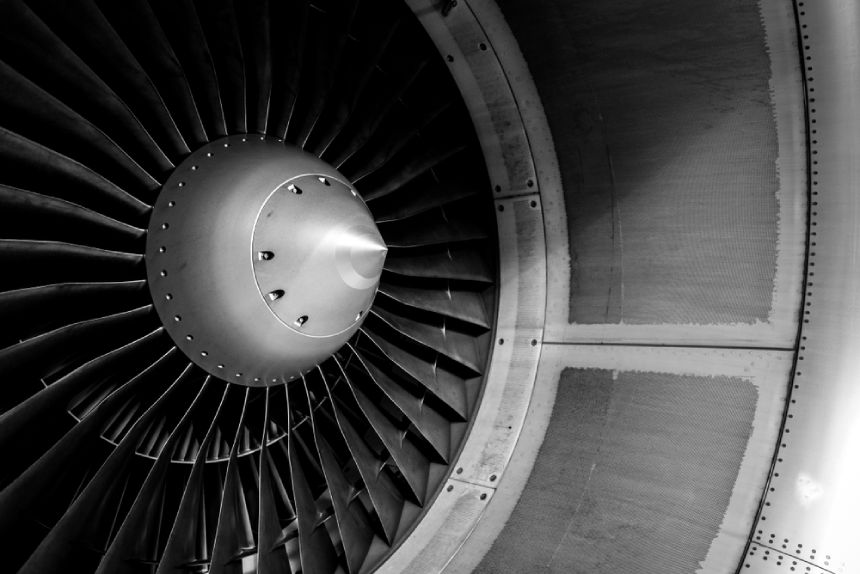
In the intricate world of aerospace and defense, compliance isn’t just a bureaucratic checkbox; it’s the cornerstone of operational excellence and safety. As technologies evolve and global tensions fluctuate, the aerospace and defense industries face a labyrinth of regulatory requirements, aerospace and defense compliance rules, and evolving threats.
This blog looks into the importance of adhering to these regulations and standards, emphasizing how compliance is integral to maintaining industry standards, ensuring product safety, and upholding a company’s reputation in these critical sectors.
Understanding Compliance in Aerospace and Defense Operations
Aerospace and defense compliance encompasses a broad spectrum of regulations and standards designed to ensure the highest levels of safety, security, and quality in manufacturing and operations. These regulations govern everything from the design and production of aircraft and defense equipment to their export and use.
Compliance in aerospace and defense is not just about following rules; it’s about integrating stringent standards into every aspect of operations, thus ensuring the utmost reliability and safety of products that often have national and global implications. A compliant aerospace and defense company must be proactive, adaptable, and fully integrated with the latest compliance tools and practices.
Key Compliance Standards in Aerospace and Defense
At the heart of aerospace and defense compliance are key standards like the International Traffic in Arms Regulations (ITAR) and Department of Defense (DoD) regulations. ITAR governs the export and import of defense-related articles and services, ensuring that sensitive technology does not fall into unauthorized hands and safeguarding national security.
DoD regulations, including the Federal Acquisition Regulation (FAR), set the framework for quality and security in defense industry contracts. These standards include specific compliance requirements that ensure compliance, governing everything from product development to supply chain management and end-user delivery.
Additionally, manufacturers must also adhere to aviation safety authorities such as the Federal Aviation Administration (FAA) and the European Union Aviation Safety Agency (EASA). These organizations oversee certification and safety protocols across borders, adding another layer to the aerospace and defense compliance standards landscape.
The Role of Compliance in Supply Chain Management
In aerospace and defense companies , the supply chain is a complex web of interdependencies, where a single non-compliant component can have far-reaching implications. Compliance plays a pivotal role in supply chain management, ensuring that every part — from the smallest bolt to the most complex electronic system — meets aerospace and defense compliance standards.
This vigilance helps in prevent issues like counterfeiting parts, which can jeopardize entire projects and, more importantly, lives. A compliant aerospace and defense company must verify and validate every component supplier, creating a secure and traceable network that enhances accountability and ensures compliance at every step.
Developing an Aerospace and Defense Compliance Plan
Creating an aerospace and defense compliance plan is a strategic endeavor that requires thorough understanding and meticulous implementation. Such a plan should outline the management systems and procedures necessary to meet compliance requirements consistently.
It’s about creating a culture where compliance is ingrained in every action and decision. This plan is a living document, continually evolving with changing regulations and business needs, guiding a company to not only meet but exceed industry standards.
A strong plan includes:
- A dedicated compliance officer or team
- Training programs across departments
- Real-time tracking of updates to regulatory requirements
- Automated management systems for reporting and audits
Compliance Requirements for Aerospace Manufacturers
Aerospace industry manufacturers are bound by a myriad of compliance requirements that ensure the safety and reliability of their products. These requirements span a range of areas, from the materials used in manufacturing processes to the final testing and certification of aircraft.
Ensuring compliance involves rigorous testing, detailed documentation, and a commitment to the highest standards of product safety and quality. For aerospace manufacturers, compliance is not just a legal requirement but a fundamental aspect of product excellence and customer trust.
Management Programs and Systems for Compliance

Effective management programs and systems are crucial for maintaining compliance in aerospace and defense companies. These systems provide the framework for monitoring compliance, managing risks, and ensuring that operations align with regulatory requirements.
They are the tools that enable companies to track compliance, conduct risk assessments, and implement corrective actions efficiently. Robust management systems are a testament to a company’s commitment to compliance, showcasing its dedication to upholding the highest standards in aerospace and defense operations.
Certification Process in the Aerospace Defense Industry
The certification process in the aerospace defense industry is rigorous and detailed, ensuring that all products and services meet the highest standards. This process involves a series of evaluations, tests, and audits to certify that every aspect of production, from design to manufacturing, complies with aerospace and defense compliance standards.
For defense companies, obtaining these certifications is not just about fulfilling legal requirements; it’s about demonstrating a commitment to excellence and reliability in their products and services.
The Importance of ITAR in Aerospace and Defense
The International Traffic in Arms Regulations (ITAR), as mentioned above, play a crucial role in the aerospace defense industry. This set of regulations controls the export and import of defense-related articles and services to safeguard national security.
Compliance with ITAR is essential for any aerospace and defense company, especially those dealing with sensitive and classified materials. Adhering to ITAR means ensuring that only authorized personnel have access to specific defense articles and technology, thereby protecting national interests and ensuring alignment with federal law.
Compliance as a Competitive Advantage
In the highly competitive field of aerospace and defense, compliance can be a significant differentiator. Companies that consistently meet and exceed aerospace and defense compliance requirements often gain a competitive advantage.
This compliance assures clients and partners of the company’s commitment to industry standards, quality and security, often leading to more business opportunities. Compliance also minimizes the risk of costly penalties and operational disruptions, contributing to a more stable and reputable business environment.
Staying Updated on Aerospace and Defense Compliance Regulations
For a compliant aerospace and defense company, staying updated on the latest regulations and standards is vital. This continuous updating requires a proactive approach to monitoring regulatory requirements and changes, and adjusting business practices accordingly.
Companies must invest in training and development to ensure their teams are knowledgeable about current and upcoming aerospace and defense compliance shifts. Staying updated not only helps in maintaining compliance but also in anticipating future changes in the aerospace industry.
Modern management systems and compliance tracking software enable organizations to stay agile and compliant amid shifting requirements, whether from the Department of Defense (DoD), FAA, EASA, or other governing bodies.
The Bottom Line
Aerospace and defense compliance is a complex but essential aspect of operations. It encompasses a broad range of activities and processes, all aimed at ensuring that
companies meet the stringent regulations and standards set forth by regulatory requirements and national authorities.
A solid aerospace and defense compliance plan is not just a legal requirement; it’s a strategic tool that fosters trust, ensures product safety, and maintains industry standards. As the aerospace and defense sectors continue to evolve, so too will the nature of compliance, requiring companies to continually adapt and improve their compliance strategies.
Enhance your efficiency with our custom ERP aerospace software
Our tailored ERP platform is designed for aerospace and defense companies, helping you streamline operations, track compliance requirements, and meet evolving aerospace and defense compliance standards. From managing your supply chain to ensuring traceability and audit readiness, we empower you to stay compliant and competitive in a complex regulatory landscape.
